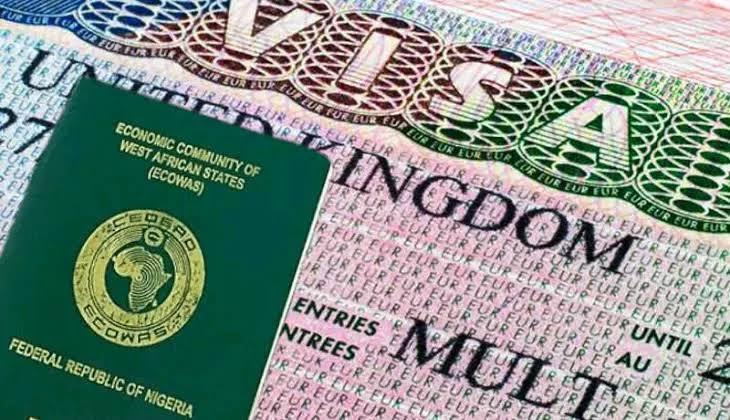By January 2024, Nigerians and other foreign nationals on study visa to the United Kingdom will no longer be able to bring in their family members, a new policy rolled out by the British government to curb migration revealed on Tuesday.
Under the proposals, only a limited number of those who come from abroad to study in the UK will still to be allowed to bring their partners or children to the country from January next year.
The crackdown on foreign students bringing dependants to Britain comes ahead of fresh migration figures to be released on Thursday.
Earlier, Home Secretary, Suella Braverman, had proposed a number of policies for immigrant students.
Under her plans, foreign students will be banned from bringing dependants to Britain with them unless they are on postgraduate research programmes; foreign students will no longer be able to switch out of the student route into work routes for staying in the UK before their studies have been completed.
Similarly, efforts will be made to clamp down on ‘unscrupulous education agents who may be supporting inappropriate applications to sell immigration not education.’
Ahead of Thursday’s release of official migration figures, some forecasts have suggested net migration could top 700,000 in the 12 months to December last year.
This would easily exceed the record of 500,000 in the year to June 2022, while one analysis suggested the figure could even near one million.
Already published Home Office figures accessed by our correspondent on Tuesday showed that 485,758 sponsored study visas were granted last year, which was a new high.
There were 135,788 visas granted to dependants – such as partners or children – of foreign students over the 12 months.
This was more than an eight-fold increase from the 16,047 visas granted to dependants in 2019.
Nigeria had the highest number of dependants (60,923) of sponsored study visa holders in 2022, while India had the second highest number of dependants (38,990).
Analysis of visas issued by the United Kingdom in 2022 to Nigerians revealed that there were more visas granted for Nigerian dependants than for Nigerian students.
Data from the Higher Education Statistics Agency of the UK revealed that 44,195 study visas were issued to Nigerians for the 2021/2022 academic session.
However, this is lower than the number of dependants’ visas issued to family members during this period.
The home office data accessed by our correspondent on Tuesday suggested that 60,923 dependants migrated to the UK during the period under review given the number of dependant visas issued.
The Home Office has suggested the growth in study related visas granted to dependants could be because a greater number of older students are coming to Britain, Daily Mail said on Tuesday.
The PUNCH reports that Nigeria has been undergoing a migration wave popularly referred to as Japa. The UK, Canada, United States are among the popular choice of destinations.
In the 2020-21 academic year, 21,305 Nigerian students were enrolled at UK universities. This represents an almost 64 per cent increase from the 2019-20 figure.
Though not yet released, the figure for the 2022-23 academic year might be even higher, anecdotal evidence suggests.
As of September 2021, only two other countries, China and India, were sending more students to the UK than Nigeria. Enrolments from Nigeria spiked from 12,820 in 2016-17 to 21,305 in 2020-21 to 44,195 in 2021/2022.
Among all nationalities, Nigerians represented the largest relative increase in sponsored study visa grants, which reached a record high of 65,929, a nearly 700% increase from 2019 and a 222.8% increase compared to the same period in 2021.
Meanwhile, the House of Representatives, on Tuesday, unanimously opposed a motion seeking to ask the United Kingdom to suspend the British Government’s restriction placed on international students from bringing their family.
A member of the House, Taiwo Oluga, had moved a motion of urgent public importance titled ‘Urgent Need to Urge the United Kingdom to Desist from Banning Nigerian Students Emigrants From Emigrating with their Families.’
Moving the motion, Oluga noted that Nigeria and the UK have had a long history that is mutually beneficial, starting from colonisation of Nigeria in the 19th Century, to granting independence to Nigeria in 1960, and to the post-independence bilateral relationship between them.
Oluga added, “The educational system in Nigeria, like many other national systems, is fashioned after that of the United Kingdom. This has led many Nigerians to seek employment as well as educational opportunities in the United Kingdom.”
But when the Speaker of the House, Femi Gbajabiamila, who presided over the session, put adoption of the motion to voice vote, the “nays” were more than the “ayes.”
Punch







